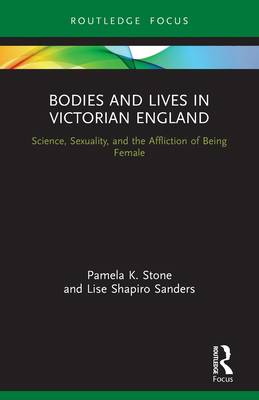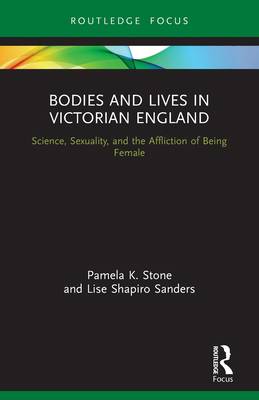
- Retrait gratuit dans votre magasin Club
- 7.000.000 titres dans notre catalogue
- Payer en toute sécurité
- Toujours un magasin près de chez vous
- Retrait gratuit dans votre magasin Club
- 7.000.0000 titres dans notre catalogue
- Payer en toute sécurité
- Toujours un magasin près de chez vous
Bodies and Lives in Victorian England
Science, Sexuality, and the Affliction of Being Female
Pamela K Stone, Lise Shapiro SandersDescription
This volume offers an overview of what it was like to be female and to live and die in Victorian England (c. 1837-1901), by situating this experience within the scientific and social contexts of the times.
With a temporal focus on women's life experience, the book moves from childhood and youth, through puberty and adolescence, to pregnancy, birth, and motherhood, into senescence. Drawing on osteological sources, medical discourses, and examples from the literature and cultural history of the period, alongside social and environmental data derived from ethnographic and archival investigations, the authors explore the experience of being female in the Victorian era for women across classes. In synthesizing current research on demographic statistics, maternal morbidity and mortality, and bioarchaeological evidence on patterns of aging and death, they analyze how changing social ideals, cultural and environmental variability, shifting economies, and evolving medical and scientific understanding about the body combined to shape female health and identity in the nineteenth century. Victorian women faced a variety of challenges, including changing attitudes regarding appropriate behavior, social roles, and beauty standards, while grappling with new understandings of the role played by gender and sexuality in shaping women's lives from youth to old age.
The book concludes by considering the relevance of how Victorian narratives of womanhood and the experience of being female have influenced perceptions of female health and cultural constructions of identity today.
Spécifications
Parties prenantes
- Auteur(s) :
- Editeur:
Contenu
- Nombre de pages :
- 146
- Langue:
- Anglais
- Collection :
Caractéristiques
- EAN:
- 9780367555313
- Date de parution :
- 01-05-22
- Format:
- Livre broché
- Format numérique:
- Trade paperback (VS)
- Dimensions :
- 135 mm x 213 mm
- Poids :
- 176 g

Les avis
Nous publions uniquement les avis qui respectent les conditions requises. Consultez nos conditions pour les avis.






